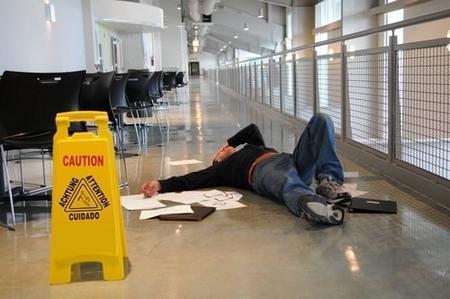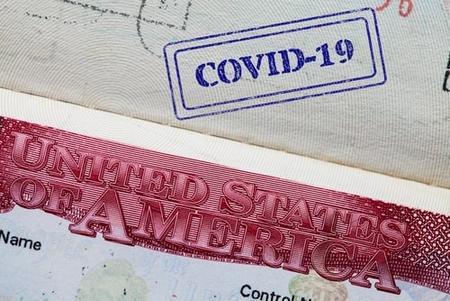Recent Blog Posts
Recovering Damages for Injuries From Slipping on a Wet Floor
 In restaurants, malls, stores, and other places of business, wet and slippery floors happen from time to time. Some are caused by spills, leaks, or moisture tracked in from outside, while others are the result of cleaning or floor treatments. In most cases, these conditions are resolved without incident, but sometimes an employee, customer, or visitor slips and falls, suffering serious injuries in the process. If you have been injured after slipping on a wet floor, it is important to understand whether the business owner may be liable.
In restaurants, malls, stores, and other places of business, wet and slippery floors happen from time to time. Some are caused by spills, leaks, or moisture tracked in from outside, while others are the result of cleaning or floor treatments. In most cases, these conditions are resolved without incident, but sometimes an employee, customer, or visitor slips and falls, suffering serious injuries in the process. If you have been injured after slipping on a wet floor, it is important to understand whether the business owner may be liable.
What Protections Are Provided Under Illinois Premises Liability Law?
According to the Illinois Premises Liability Act, business and property owners owe a duty of “reasonable care under the circumstances” to lawful visitors to their place of business. In general, this means that they are responsible for keeping the premises reasonably safe, and that they may be held liable for injuries resulting from a breach in their duty of care. However, the specific details of what this duty of care includes are often left to the court’s interpretation, making it vitally important that injury victims are represented by an experienced attorney who can help them make a strong case.
Divorce Concerns for Illinois Business Owners
 If you own a business, it is likely one of your most valued properties, if not the property that is the most important to you. A business represents the investment of time, money, and effort, and it is often crucial to your ability to support yourself. As such, the thought of something happening to your business in a divorce can be extremely concerning. However, if you thoroughly prepare for the divorce process, you can effectively address many of the issues that often affect business owners.
If you own a business, it is likely one of your most valued properties, if not the property that is the most important to you. A business represents the investment of time, money, and effort, and it is often crucial to your ability to support yourself. As such, the thought of something happening to your business in a divorce can be extremely concerning. However, if you thoroughly prepare for the divorce process, you can effectively address many of the issues that often affect business owners.
How Does a Business Affect the Divorce Process?
Illinois business owners should be well informed about all of the following issues that may arise during their divorce:
- Marital and non-marital property - Illinois law defines what qualifies as marital property, which belongs to the couple and must be divided in a divorce, and non-marital property, which belongs to each spouse individually. Business owners should determine whether their business qualifies as a non-marital asset, perhaps because they owned it before the marriage or inherited it from a family member, or because they have a prenuptial agreement that excludes the business from the marital estate.
Can I Recover Compensation for Mental and Emotional Injuries?
 If you have been in a car accident, your physical injuries may be the most readily apparent, and you may assume that these are the only injuries for which you can recover compensation. However car crashes also often lead to mental and emotional injuries that may affect your life just as much, if not more so. Fortunately, Illinois law allows accident victims to recover both economic and non-economic damages related to mental injuries, and a skilled attorney can help you do so.
If you have been in a car accident, your physical injuries may be the most readily apparent, and you may assume that these are the only injuries for which you can recover compensation. However car crashes also often lead to mental and emotional injuries that may affect your life just as much, if not more so. Fortunately, Illinois law allows accident victims to recover both economic and non-economic damages related to mental injuries, and a skilled attorney can help you do so.
Common Mental and Emotional Injuries in Illinois Car Accidents
If you have been injured in a car crash, you may be coping with one or more of these effects on your mental and emotional well-being:
- Anxiety and depression, perhaps as a complication of a traumatic brain injury or as a result of stress related to financial struggles, changes in your appearance, or impairment of your physical abilities.
Do I Need the COVID-19 Vaccine to Immigrate to the U.S.?
 The growing availability of COVID-19 vaccinations has provided hope for controlling the global pandemic and relaxing international travel restrictions that have been in place for much of the last year. However, while the majority of Americans are likely to be fully vaccinated in the near future, vaccine distribution is not as advanced in many other countries throughout the world. If you are a foreign national seeking to enter the U.S. as an immigrant or on a temporary visa, you may be wondering whether getting the COVID-19 vaccine will be a necessary prerequisite.
The growing availability of COVID-19 vaccinations has provided hope for controlling the global pandemic and relaxing international travel restrictions that have been in place for much of the last year. However, while the majority of Americans are likely to be fully vaccinated in the near future, vaccine distribution is not as advanced in many other countries throughout the world. If you are a foreign national seeking to enter the U.S. as an immigrant or on a temporary visa, you may be wondering whether getting the COVID-19 vaccine will be a necessary prerequisite.
Will the U.S. Require Vaccine Passports?
Since the announcement of the various COVID-19 vaccines, there have been numerous rumors and discussions of a possible “vaccine passport” requiring people to demonstrate that they have been vaccinated in order to engage in activities ranging from traveling by plane to attending sporting events. However, as of yet, there is no vaccine passport program in place in the U.S. at the federal level, nor are there definitive plans to implement such a program. This could change in the coming months, but for the time being, vaccination is not a requirement for either domestic or international travel to or from the U.S., including for the purposes of immigration.
When Do Illinois Courts Order Restrictions on Parenting Time?
 When parents get divorced, their children’s best interests and well-being are paramount when determining an appropriate allocation of parental responsibilities and parenting time. In many cases, protecting a child’s best interests means ensuring that they can spend significant time with both parents after the divorce. However, there are situations in which restricting parenting time is necessary to ensure a child’s safety.
When parents get divorced, their children’s best interests and well-being are paramount when determining an appropriate allocation of parental responsibilities and parenting time. In many cases, protecting a child’s best interests means ensuring that they can spend significant time with both parents after the divorce. However, there are situations in which restricting parenting time is necessary to ensure a child’s safety.
Grounds for Restricted Parenting Time
In Illinois, it is fairly common for a parenting time schedule to allocate more time to one parent than the other, whether because the parents agree to this arrangement or the court determines that it best meets the children’s needs. However, a parenting time restriction is a much more serious matter, and it is only ordered by the court when there is sufficient evidence that a parent has endangered a child’s physical or mental health or development. In some cases, a restriction will reduce or even eliminate a parent’s allocated parenting time, but other options are available to the court depending on the circumstances.
Common Forms of Negligence in Illinois Motorcycle Accidents
 Motorcycle crashes are not especially common in Illinois, but they are especially fatal. In 2018, for example, less than 1 percent of all Illinois traffic accidents involved a motorcycle, but more than 12 percent of all fatal motor vehicle accidents included at least one motorcyclist. Injured motorcyclists who survive accidents, as well as family members of those who do not, should work with an experienced attorney to demonstrate negligence and recover fair compensation through a personal injury or wrongful death claim.
Motorcycle crashes are not especially common in Illinois, but they are especially fatal. In 2018, for example, less than 1 percent of all Illinois traffic accidents involved a motorcycle, but more than 12 percent of all fatal motor vehicle accidents included at least one motorcyclist. Injured motorcyclists who survive accidents, as well as family members of those who do not, should work with an experienced attorney to demonstrate negligence and recover fair compensation through a personal injury or wrongful death claim.
Motorcycle Crashes Caused by Unsafe Driving
Many Illinois motorcycle accidents are caused by the negligent behavior of a driver, which can take many different forms. Some common examples include:
- Speeding - Motorcyclists and drivers of passenger vehicles alike are often tempted to exceed the speed limit or travel at speeds that are unsafe for the conditions in which they are driving. Speeding makes it easier for drivers to lose control and more difficult to react in time to prevent a collision.
Will Getting a Divorce in Illinois Delay My Retirement?
 Preparing for retirement is a lifelong process that requires careful planning and thoughtful goal setting. Most married couples work on their retirement plan together, with many expecting to rely on savings that both spouses have accumulated throughout their lives and careers. However, when your marriage ends in divorce, those retirement plans can be turned upside down, and you and your spouse will likely need to adapt your retirement goals for your new life circumstances. In some cases, this means delaying your retirement date, but there may be other options as well.
Preparing for retirement is a lifelong process that requires careful planning and thoughtful goal setting. Most married couples work on their retirement plan together, with many expecting to rely on savings that both spouses have accumulated throughout their lives and careers. However, when your marriage ends in divorce, those retirement plans can be turned upside down, and you and your spouse will likely need to adapt your retirement goals for your new life circumstances. In some cases, this means delaying your retirement date, but there may be other options as well.
What Happens to Retirement Savings in an Illinois Divorce?
What becomes of your retirement savings depends on whether the funds qualify as marital or non-marital assets. If you have a retirement account that was funded entirely before your marriage, it will be considered non-marital property, and you will likely be able to hold onto the entire amount. If you have contributed to an account both before and during your marriage, the pre-marriage contributions may also qualify as non-marital property, though it is important to maintain detailed records to clarify this non-marital portion.
Studies Show Connection Between Immigration and Economic Growth
 Much of the conversation and public perception surrounding immigration in the United States is centered on the effects that it may have on the economy, with proponents of stronger borders frequently arguing that immigrants may take job opportunities from American citizens or become reliant on government resources for support. However, a number of studies in recent years present compelling counterpoints to these claims by showing the positive impact that immigrants can have on the national economy. Such research could prove promising for businesses seeking to hire immigrants, as well as individuals seeking to enter the U.S. for employment purposes.
Much of the conversation and public perception surrounding immigration in the United States is centered on the effects that it may have on the economy, with proponents of stronger borders frequently arguing that immigrants may take job opportunities from American citizens or become reliant on government resources for support. However, a number of studies in recent years present compelling counterpoints to these claims by showing the positive impact that immigrants can have on the national economy. Such research could prove promising for businesses seeking to hire immigrants, as well as individuals seeking to enter the U.S. for employment purposes.
Effects on Growth and Productivity in the Labor Force
Evidence suggests that growth in the size of the native-born labor force in the U.S. is stagnating, in large part due to declining birth rates and the aging of the sizable Baby Boomer generation. Economists argue that immigration can promote consistent growth and fulfill an important role in the workforce, especially in certain areas and industries. U.S. Census data shows that immigrants were the primary driving force of rural population growth over the last decade, and that immigrants make up at least 25 percent of the labor force in occupations ranging from farming and fishing, to maintenance, to food and apparel manufacturing.
Which COVID-19 Immigration Restrictions Are Still in Effect?
 Throughout the COVID-19 pandemic, those seeking entry to the United States as immigrants and nonimmigrants have faced an additional layer of challenges due to executive proclamations restricting travel in the interest of public health. President Biden has relaxed restrictions somewhat, and as vaccines become more widely available and the spread of the virus slows, more restrictions may be lifted. However, for the time being, certain restrictions continue to remain in effect.
Throughout the COVID-19 pandemic, those seeking entry to the United States as immigrants and nonimmigrants have faced an additional layer of challenges due to executive proclamations restricting travel in the interest of public health. President Biden has relaxed restrictions somewhat, and as vaccines become more widely available and the spread of the virus slows, more restrictions may be lifted. However, for the time being, certain restrictions continue to remain in effect.
Suspended Entry for Nonimmigrant Visas
Since June 24, 2020, Executive Proclamation 10052 has prevented entry to the U.S. by any non-citizen using certain types of non-immigrant visas. This includes:
- H-1B visas for temporary employees with specialized occupational knowledge or skills
- H-2B visas for seasonal or intermittent laborers
- J visas for interns, teachers, au pairs, and certain others seeking participation in a cultural exchange program
How Does Contributory Negligence Affect an Illinois Personal Injury Case?
 If you are injured through no fault of your own, you may be aware that in many cases, Illinois law allows you to pursue compensation from a person or party whose negligence is responsible for your injuries. However, questions of negligence can be complicated, and defendants in personal injury cases often attempt to argue that the plaintiff’s own negligence contributed to their injuries. If there is a possibility that you were partially at fault for the accident in which you were injured, you should work with an attorney to determine whether compensation is available.
If you are injured through no fault of your own, you may be aware that in many cases, Illinois law allows you to pursue compensation from a person or party whose negligence is responsible for your injuries. However, questions of negligence can be complicated, and defendants in personal injury cases often attempt to argue that the plaintiff’s own negligence contributed to their injuries. If there is a possibility that you were partially at fault for the accident in which you were injured, you should work with an attorney to determine whether compensation is available.
Contributory Negligence in Illinois
While Illinois recognizes that an injury victim may have contributed to the circumstances causing their injuries, the state does not necessarily prevent them from recovering damages from other negligent parties in these cases. Rather, in determining the availability of compensation, the court will seek to establish the percentage of fault of each party who contributed to the accident. If an injury victim bears 50 percent of the fault or less, they can still recover compensation, but their damages will be reduced by their percentage of fault. On the other hand, if the injury victim bears more than 50 percent of the fault, they will be ineligible for compensation.
 English,
English,
 Spanish,
Spanish,
 Polish,
Polish,
 Urdu
Urdu












 Make a Payment
Make a Payment



